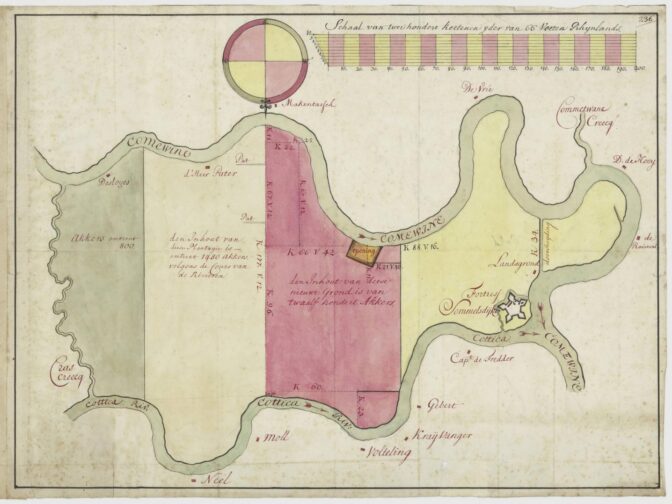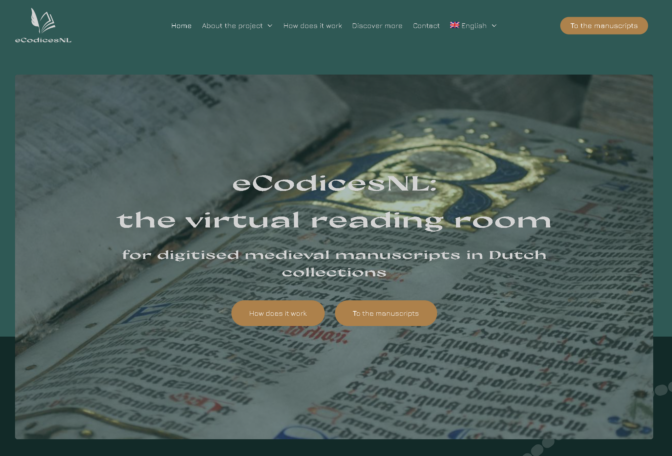Here is an overview of all the new sources, websites, and news from archives announced last month.
Sources
- The civil registration birth records of Suriname (1828-1921) have been digitized and indexed. The information can be found on the website of the National Archives of Suriname. The registration only includes births of people who were born free. For people born in slavery (legal in Suriname until 1863), check the slave registers.
- Notarial records from Nijmegen (1812-1844) have been digitized and partially indexed. This is part of a larger project to make Nijmegen notarial records avialable online. The results can be accessed on the Regionaal Archief Nijmegen website.
- Court and notarial records of several places in Zuid-Holland have been added to Hofoda. Access is restricted to members of Ons Voorgeslacht.
- The minutes of the States of Holland and the cities of Medemblik, Leiden and Purmerend 1601-1689 have been digitized. See the links at the bottom of the news announcement for the scans.
- The munutes of the States of Zeeland (1574-2007) are now full-text searchable via the finding aid.
- Several court records of the city of Groningen (1475-1811) have been digitized. They are available via the finding aid.
- Indexes of several church records in the east of North-Brabant and civil birth records from the 1900s have been added to the Brabants Historisch Informatie Centrum website.
- Several transcriptions of court and tax records in the east of Gelderland have been added to Genealogiedomein.
- The Utrechts Archief has added a map to their website of Utrecht locations of interest in World War II, including addresses of Jewish residents and resistance workeres.

Map of Commewijne and Cottoca rivers in the colony of Suriname. Credits: National Archives of the Netherlands (public domain)
Websites
- A new website features shipping wharfs in the Netherlands. It includes information about the dates the wharrf was active, owners, names over time, and institutes that have more information about the wharf. The database functions as a thesaurus for heritage instutes who want to identify wharfs in their collections. Click “Zoeken” to search.
- The new website eCodices features medieval manuscripts from several heritage institutions in the Netherlands.
Archives
- UNESCO added several Dutch records to their Memory of the World register, including records relating to slavery in Suriname, Curacao, and Sint Maarten, and the Dutch Digital City community website from 1994.
- In May, Collectie Overijssel did a pilot with automatically transcribing ordered scans as part of their free scanning on demand service. They are now evaluating the results.
- The records of the family Van Ditzhuizen, an important family in eastern Gelderland, have been transferred to the Gelders Archief. The finding aid is now online. Some of the records can be viewed online, others require an on-site visit to the Gelders Archief in Arnhem.
- Several records at the Noord-Hollands Archief were used for an investigation into Noord-Holland properties belonging to Jewish owners that were confiscated in World War II. You can download the report (Dutch).
- The National Archives will be renovating the facade and roof. This will take until the middle of 2024. The reading room will remain open.
Projects
- The aldermen’s records of Terheijden 1561-1811 are being digitized. The scans will be made available in the finding aid.
- The militia records of several municipalities in and around Tilburg are being digitized. These registers include the names of all 19-year-old men who registered for the draft. The scans will be published on the Regional Archief Tilburg website.
- The Central Bureau for Genealogy is indexing the heraldry collection Muschart. Volunteers can report to Het Volk.
- The National Archives is digitizing records of Curacao, Bonaire and Aruba (1707-1828) and Navy (1795-1813). The scans are being added to the National Archives website.
- The Flevolands Archief has finished indexing records about polders. The results will become available at the Flevolands Archief website after quality control.



Thank you, I deeply appreciate your excellent newsletter. In looking at the new archives that available in Groningen I need to ask exactly what the “molesteren” is that some people were charged with. Were there different levels of this terrible crime?